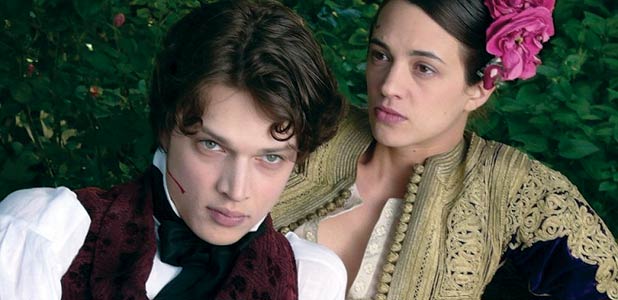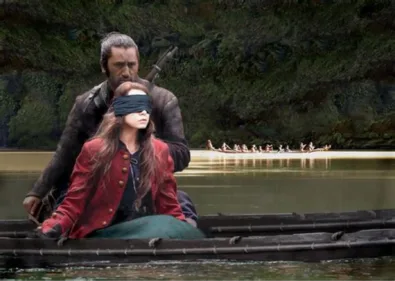Roger’s review of “The Last Mistress.”
Why did I pick this review?
The reason I love this review is because I think Roger saw something of himself in the desperate characters that populate Catherine Breillat’s beautiful “The Last Mistress.” He glimpsed a broken reflection of the old libertine ways he’d given up. It brought out poetry in his writing, usually doggedly but engrossingly rational. He begins in his typical style: “In ‘The Last Mistress,’ a passionate and explicit film about sexual obsession, everything pauses for a scene depicting a marriage. It is 1835, in a church in Paris. Vows are exchanged between Ryno de Marigny, a notorious young libertine, and the high-born Hermangarde, whose wealth will be a great comfort to the penniless Ryno.” These are facts, not yet impressions. He finds a curious way into the film. “I wondered why time was devoted to the ceremony, in a film where Hermangarde speaks scarcely 100 words, and the great passion is between Ryno and his mistress of 10 years, the disreputable Vellini. Then I realized it was an excuse to work in the biblical readings …These readings enter the film precisely to be contradicted by Vellini (Asia Argento) in every atom of her being.”
In the Vellini character he sees a kindred hellraiser, someone whose life was similarly and gleefully in thrall to passion. Roger gave himself to his habits (characterized so splendidly time and again in his work), the most beautiful of which was his love of film. He let it define his life, to the point that when he died, he had as much a reputation for his love, his “uncontrollable desire” as Vellini, a famed courtesan. You can sense from his carefully chosen, beautifully evocative sentences in the middle of the review that he feels a twinge of nostalgia for days when he could be as wild as he felt. But he knows the cost of living like there weren’t consequences. “Of all the vices he observes, gluttony lasts the longest, and never disappoints.” In his honesty and simplicity, Roger could be deeply touching and sage, like he knew his words would be needed hundreds of years from now. Roger’s words helped millions of people discover the joy of movies. I’m always touched when you could see films giving back to him.












